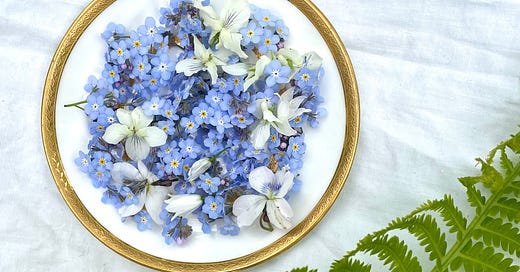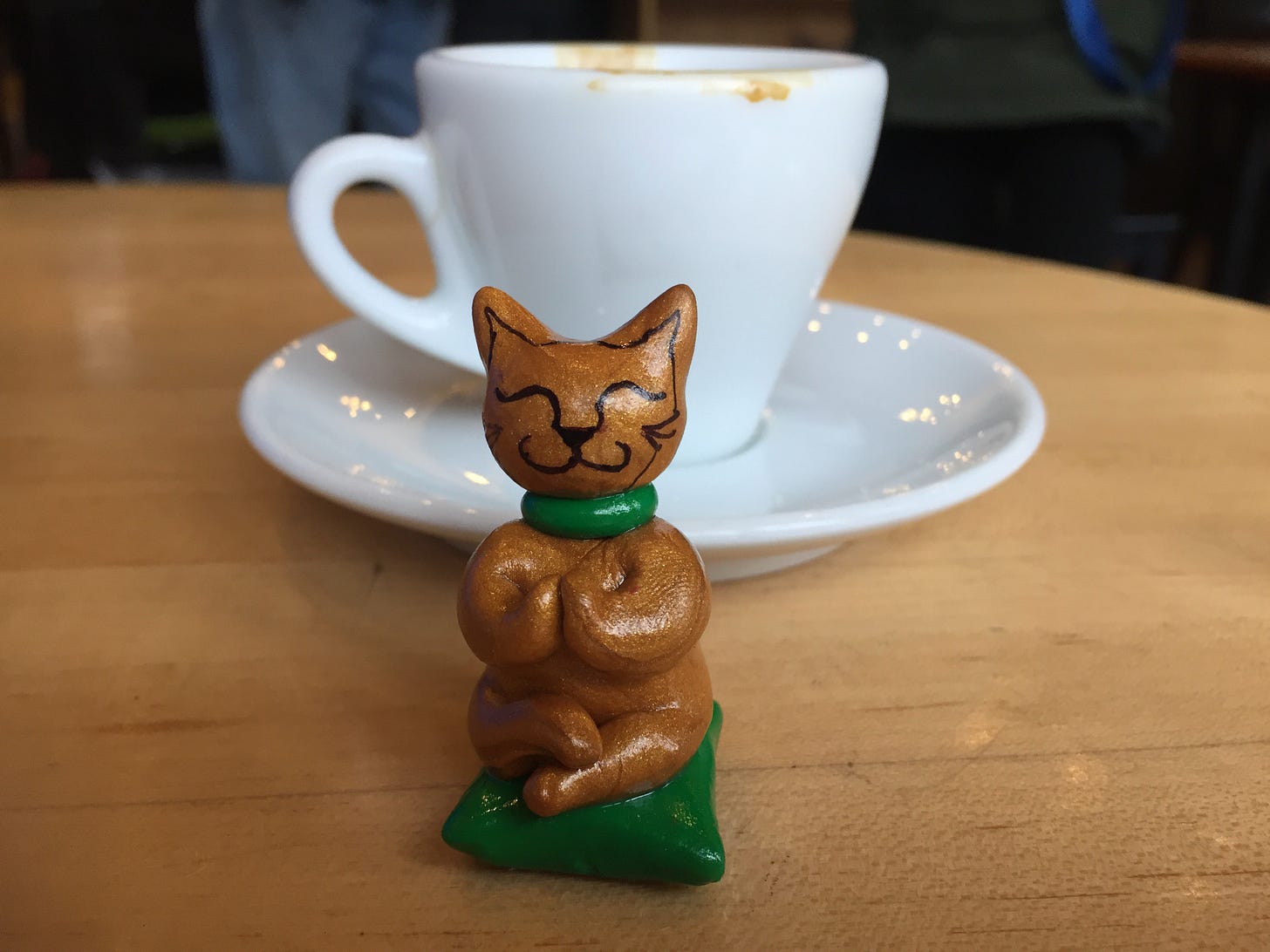In the car on the way to dialysis my mother said, “This morning I told your father to go eat his breakfast because I was going to need some help getting dressed, but I wanted a few minutes to rest in bed first.”
She rested, then waited for him to come back in, but he didn’t.
“I could hear him in the kitchen,” she said. “Scrape, scrape scrape, pause. Scrape scrape scrape pause.” (That is the sound of my father getting all the yogurt out of the container.)
After a while she yelled, “Frank!” and he yelled, “What?!!!” And she knew that in a span of fifteen minutes, he’d forgotten about her.
We were quiet. I knew what this meant—Dad was getting worse. He had been in phase one of Alzheimer’s for a while, but the sicker Mom got, the more he was forgetting things and the fact that he had forgotten her felt serious. Mom was Dad’s primary focus. He drove her everywhere, helped her dress, shop, lifted her walker in and out of the car, knelt at her feet to tie her shoes when it was too hard for her to reach them.
I asked her if she said anything to him about it and she said no. “He gets so angry at himself if I tell him what’s he’s forgotten, especially if it’s me,” she said. She wished that she could make all of this easier for him.
We drove past an old farmhouse that used to be beautiful, but was now beyond hope. The colors of July, yellow, blue, and bright green were giving way to the deeper ones of August—tawny goldenrod, purple asters and red sumac. Everything was glowing in the late summer light.
“You are making it easier,” I said.
“How?” she said.
“For one thing, you’re still alive. Also, you’re patient with him when he forgets things, you appreciate what he does do, and you love him.”
Mom was quiet.
“It could be a lot worse,” I said.
Mom was still quiet.
“And,” I said, “this is awful.”
“Yes,” she said. “It’s a terrible disease.”
“Horrible,” I said. “The worst.”
Five years later, I am thinking about that moment. I am thinking about how she stopped talking to me until I acknowledged her pain. I am thinking about how hard those months were—Mom getting worse, Dad struggling. I am also thinking about how rich they were—how much anger and sorrow and humor and hope and love there was on any given day, how little room there was for small talk.
I am thinking about how in spite of his challenges, when my mother chose to stop dialysis, which meant she would die within days, Dad knew exactly what to do. Without even taking his shoes off, he climbed into bed with her and they lay there, arms around each other, chatting easily while my sisters and I wept in the next room.
“You’ve been such a wonderful husband,” I heard Mom say. “Of course there were times I thought, argh, I don’t know what to do with this man! But those were so few compared to all the rest of the years, especially our last ones, when we’ve had so much joy.”
I am thinking about how much more room for tenderness there is if we allow ourselves to feel everything.
I am thinking about how the sun this morning made everything glisten, and my whole back yard is teeming with life.







This is such a beautiful piece of writing, Rebecca. It made me cry. And that photo is so poignant. Sending love 💕
Geez, Rebecca, this one really made me cry. That picture will always turn my heart upside down with grief and tenderness. He's lost a lot but he's still scraping his bowl to the last little drop of whatever Alzheimers friendly food he is eating.